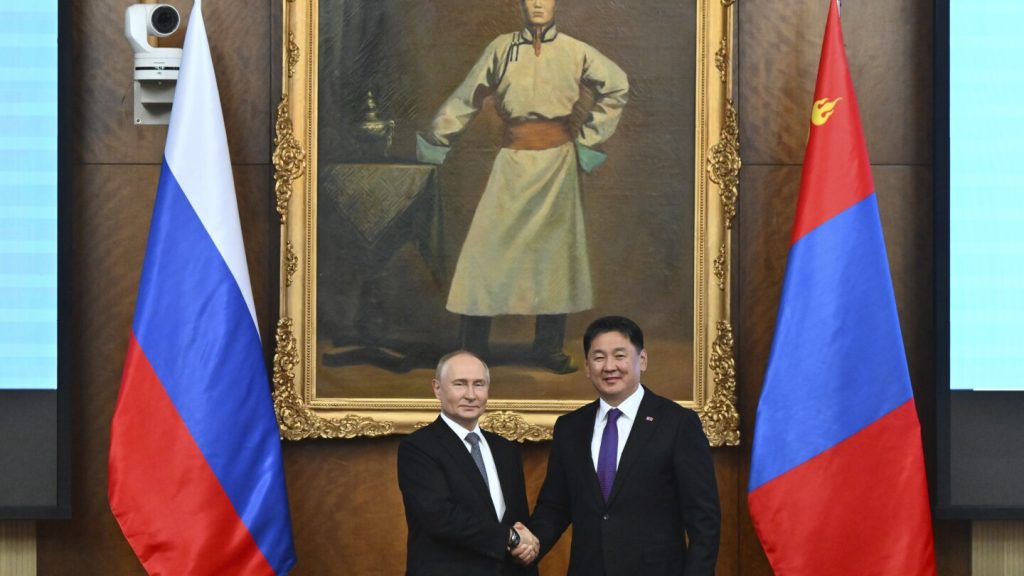Russian President Vladimir Putin received a red-carpet welcome in Mongolia, despite being the subject of an international warrant for alleged war crimes related to the invasion of Ukraine. Ukraine had urged Mongolia to hand Putin over to the International Criminal Court in The Hague, but the country was caught in a difficult position due to its economic reliance on both Russia and China. The warrant accused Putin of abducting children from Ukraine, but there was no mechanism in place for the court to enforce the warrant.
During his visit to Mongolia, Putin was greeted with ceremonial honors reminiscent of the 13th-century Mongol ruler Genghis Khan. While a small group of protesters attempted to display a Ukrainian flag, they were promptly removed by police. Despite the controversy surrounding Putin’s presence in Mongolia, the visit continued as planned, with agreements signed between Mongolia and Russia for various projects, including a power plant upgrade and rail system development. Putin also invited the Mongolian president to attend a summit of BRICS nations in Russia.
As Putin was being welcomed in Mongolia, his forces struck a military facility and hospital in Poltava, Ukraine, resulting in multiple casualties. The visit concluded with Putin’s departure and an honor guard lining his walk to the airplane. His trip to Mongolia was seen as an attempt to defy the international isolation he faced due to the invasion of Ukraine. While the European Union expressed concerns about the ICC warrant not being executed, Mongolia, like other countries, has the right to develop international relations according to its interests.
Despite the calls for Putin’s arrest by international groups and some Russian dissidents, Kremlin spokesman Dmitry Peskov emphasized that the visit was about developing bilateral ties between the two historical allies. Putin participated in a ceremony marking the joint Soviet and Mongolian victory over Japan’s army in 1939, highlighting the historical connections between the two countries. While some praised Russia’s historical role in Mongolia’s liberation, others criticized Putin’s visit as a form of humiliation for the country.
Putin’s trip to Mongolia was viewed by some as a sign of weakness, as he avoided countries where he could potentially face legal consequences. The visit was a strategic move to strengthen relations with a traditional ally and counter the backlash from the international community over the war in Ukraine. Despite the controversy and protests surrounding the visit, Mongolia’s position as a small country caught between major global powers made it difficult for them to execute the ICC warrant against Putin. The trip highlighted the complex dynamics between diplomatic obligations and national interests in the international arena.


